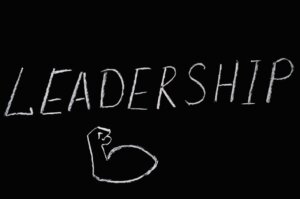A recent encounter got me thinking about inter-generational interactions and communication in the workplace.
As a volunteer usher at a performing arts organization, I was given the wrong sign in sheet by young millennial who was chatting away with another staff member.
Later, it was brought to my attention, by the same person, who said to me, “You signed the wrong sheet.” There was no apology or taking of responsibility.
My first reaction was annoyance thinking, “It was your mistake, not mine. Don’t you know I’ve been working much longer than you…you should show some respect….where’s your work ethic?”
Once I got out of my righteous indignation, I looked back and realized that maybe I need to take some responsibility for not paying more attention in the first place. Also in the past, when I’ve observed her in action as she dealt with patrons, she was professional. So that got me thinking!
Generational Differences
For the first time we now have four generations in the workplace (traditionalists – baby boomers -X ‘ers – millennials) which presents interesting challenges and opportunities to leaders, managers, and their teams. So much has been written about the differences in traits, expectations, styles, preferences. But I’m wondering if we should also be looking at what are the similarities.
The Center for Creative Leadership asked this question:
Is it possible to work with and manage people from all generations effectively without pulling your hair out?
Absolutely! The following ten truths about generational conflict can help you look past the stereotypes and become a more effective leader to people of all ages.
- All generations have similar values. In fact, they all value family, the most. They also attach importance to integrity, achievement, love and competence
- Everyone wants respect – they just define it in the same way.
- Trust matters especially with the people you work directly with. Everyone wants to trust and want to be trusted.
- People of all generations want leaders who are credible and trustworthy. They also want them to listen well and be farsighted and encouraging.
- Office politics is an issue – no matter what your age. Most realize that political skills are a critical component in being able to move up and be effective.
- No one really likes change. Resistance to change has nothing to do with age; it is all about how much one has to gain or lose with the change.
- Loyalty depends on the context not on the generation. People stay or leave a company based on their boss, opportunities, stage of life and other factors.
- It’s as easy to retain a young person as it is to retain an older one. It depends on what’s important to them. Age defines a demographic not a person
- People of all generations want to make sure they have the skills and resources necessary to do their jobs well. The ability and desire to learn continues throughout life.
- Everyone wants to know how they’re doing. Feedback is desired but no one likes only negative feedback; they also want positive as well.
Smart Management Tip:
Use these ten principles to help you work with and lead people of all ages. When generations fail to communicate and interact effectively in the workplace, we may see a negative impact on the bottom line – performance , productivity and profitability are trending downward. . So the next time to start thinking negatively about a specific age group , stop and ask yourself, what do we have in common that I can tap into? How can I see them and the situation differently?
Do you want to develop your Management Smarts?
- Build your skills with The Effective Manager.
- Sign up for Quick Wins: 101 Management Tips.
- Find performance boosters in the Smart Moves Blog.
- Listen to The Business Edge Internet Radio for success tips.
- Copyright © 2013 Marcia Zidle business and leadership coach.
 Sections of this topic
Sections of this topic
















